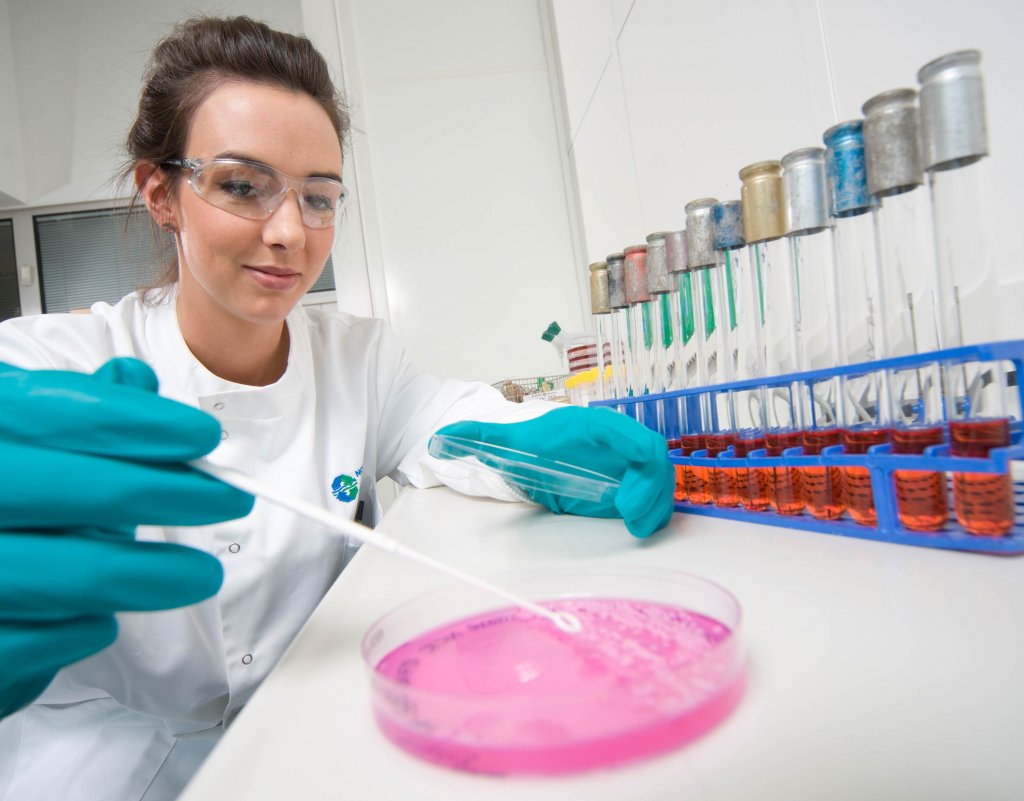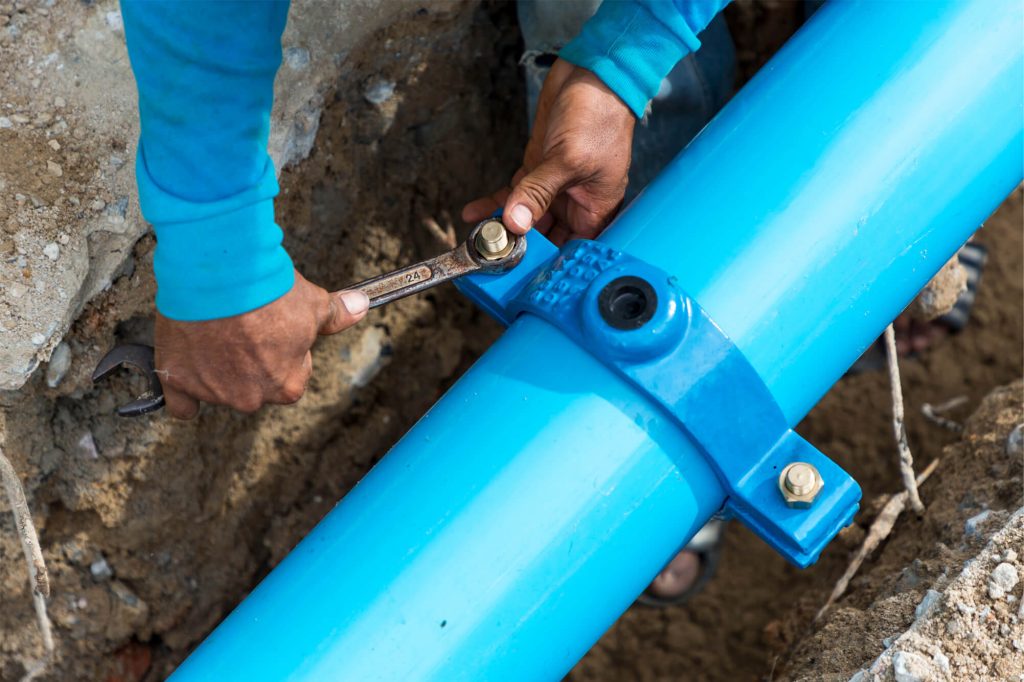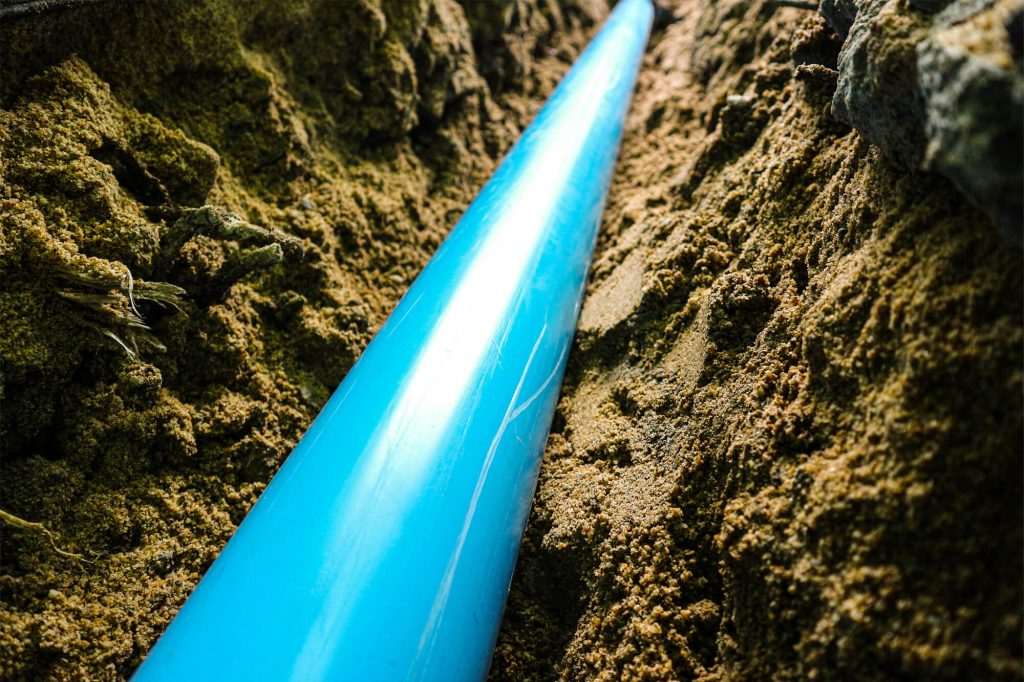We would love to have a chat about how we can help your business, give us a call today on 0800 028 3557.


If you’re installing a new water infrastructure, you may have obligations to carry out pressure testing and a chlorination test, to ensure it’s safe to connect any new pipes to the public water mains. Total Water Solutions can help you understand when this is necessary and manage all water system checks such as water chlorination, pressure testing, and sampling, to ensure that your new water systems are fully compliant with water regulations.
Under the Water Supply (Water Fittings) Regulations 1999, new water systems containing more than one joint must be pressure tested before connection to the public water mains, to ensure the integrity and efficiency of the public water network is maintained. Both underground and above-ground water systems must be tested, to ensure they’re able to cope with increases in pressure without leaking.

In some circumstances, chlorination is also required to disinfect new water pipes before they’re connected to the mains. In particular, water pipes which are more than 50 metres in length or 50mm in internal diameter, or which have been left empty or isolated for more than 30 days, must be disinfected. After chlorination, a bacteriological analysis must also be carried out to confirm that the new water pipes do not pose any risk to the mains water supply.
As part of Northumbrian Water Group, Total Water Solutions’ experienced team are perfectly placed to ensure that your new water pipes are fully compliant and ready for connection to the mains network. We manage every aspect from pressure testing water mains, water chlorination tests, and sampling, with full UKAS-accredited sampling and analysis from our own in-house laboratories, to make sure you get a fast turnaround and high-quality water chlorination service.
If necessary, we can also recommend and support with remedial work or reinforcement to ensure your water systems are maintained to the highest standards. We pride ourselves on providing a fast service with minimal disruption to your operations, and provide all the necessary plant, machinery and resources to conduct any remedial work.


Checking water pressure ensures the system operates efficiently and safely. Too low, and you may experience poor flow; too high, and it could damage appliances and pipework. Regular checks help identify potential issues early and ensure compliance with system requirements.
Chlorinating a water system helps disinfect the pipework, removing harmful bacteria and ensuring the water is safe for use. It’s an essential step when commissioning new systems, after repairs, or if contamination is suspected, helping to maintain water hygiene and meet regulatory standards.
Contact your local water supplier to apply for a new water connection. Submit required details and site plans and the supplier may arrange a survey. After approval, a qualified contractor can install the new pipework, followed by testing and connection by the water company.
To comply with the UK’s pressure testing pipework regulations for main pipelines, you must adhere to relevant standards such as BS EN 806-4. This typically involves testing the pipework at 1.5 times its working pressure for a specified duration, often at least 30 minutes, to ensure there are no leaks and that the system can withstand operational demands.
To test water pressure, attach a water pressure gauge to a suitable tap, turn the tap fully on, and read the pressure. Ensure all other taps are closed for an accurate measurement.
Chlorinating a water system typically involves flushing the system, introducing a chlorine solution, allowing it to take effect, and then flushing it out before completing a chlorination sample. Specific steps may vary based on regulations and system requirements.
Complete the enquiry form below and we’ll get back to you soon.